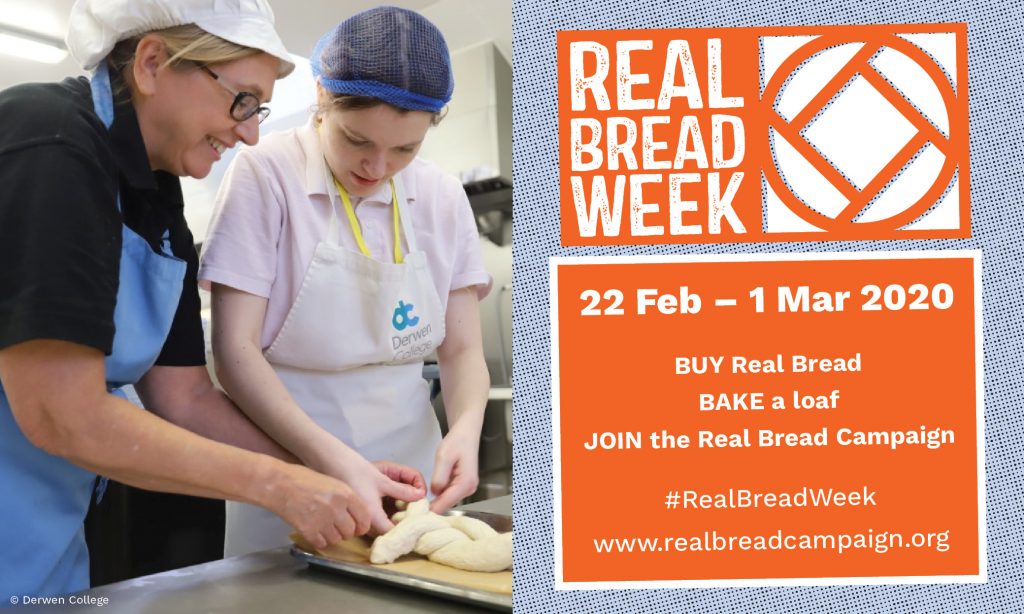
It’s Real Bread Week and we’re celebrating all things sourdough with our new community baking project.
We’re delighted to be teaming up with one of our members, Scotland the Bread – a project growing better grain and baking better bread with the common purposes of nourishment, sustainability and food sovereignty – to deliver a series of sourdough baking workshops in local communities. The Baking in the Community project aims to improve access to nutritious and locally baked bread for people living in areas where that access is compromised.
While sourdough has been enjoying a resurgence in recent years, it remains largely inaccessible. It is seen as artisan pursuit – a complicated process akin to alchemy, and one which is difficult to replicate in your own kitchen. In fact, the opposite is true: home-made sourdough loaf can be surprisingly simple to make, and it is hard to produce at scale.
The key thing about a sourdough culture is that it’s alive; it responds to temperature and the type and quality of flour. As a result the main ingredients in sourdough baking are attention and patience, and these can be in short supply in a large scale commercial operation. To allow a loaf some extra time to mature – perhaps because the flour was coarser than usual, or the kitchen temperature has dropped a little – would be hugely disruptive in a context of a factory. The resulting loaves can also vary in shapes and sizes, and that too is undesirable in the age of standardised packaging.
While sourdough is unlikely to succeed on a production line, it lends itself beautifully to small-scale community bakeries. In fact, in many cultures bread baking has always been a community pursuit. With the high temperatures required by the bread backing process (230-250C), it was economical to bake several loaves in a single oven. And with bread tasting its best while still warm, communal neighbourhood baking was a perfect solution.
Our project with Scotland the Bread hopes to strengthen small-scale baking by training a group of ‘community fermenters’ to deliver sourdough baking workshops in local communities. We know that the success of community bakeries relies on more than producing delicious loaves, which is why the group will aim to develop strategies for overcoming the most common barriers to setting up a thriving small-scale bakery, particularly in areas which are economically deprived.
With ‘sourdough’ remaining an unregulated term, supermarket ‘soured-dough’ bread is as distant from the real thing as aspartame is from honey. To access real sourdough bread we need a thriving network of community bakeries. While this network – unlike a fermented loaf – will not rise overnight, we mustn’t underestimate the power of a committed group of enthusiasts to make a real difference. We all should have access to nutritious, sustainably produced loaves, not only as a question of equality or the right to food, but as a question of pleasure. The crackling crust, the sweet middle, covered in butter or just as is… How the three simple ingredients of flour, water and salt could produce such delight is true true alchemy which should never stop to amaze us.